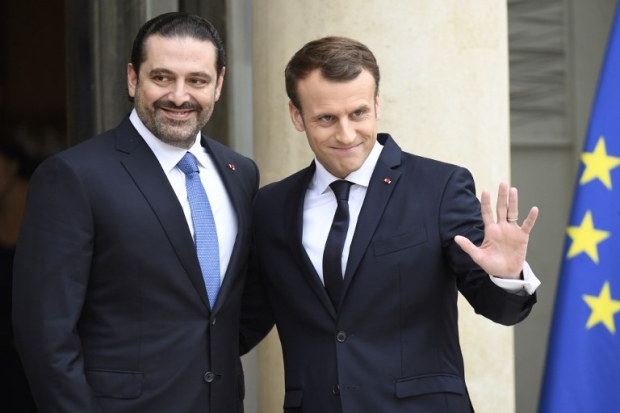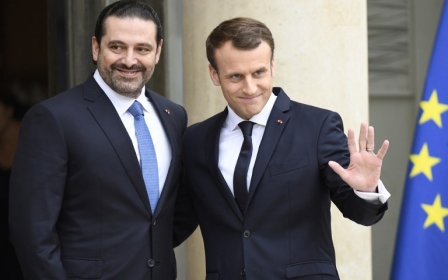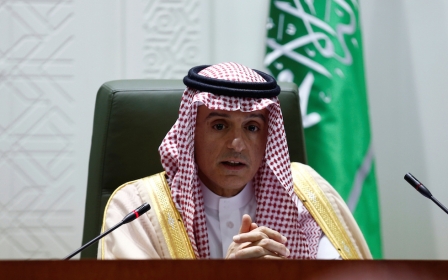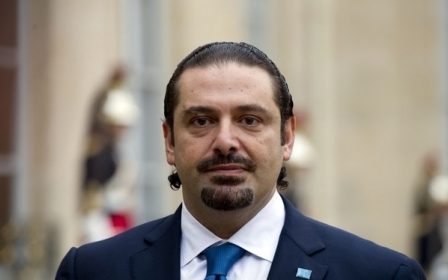Lebanon PM confirms he will return to Beirut as crisis simmers
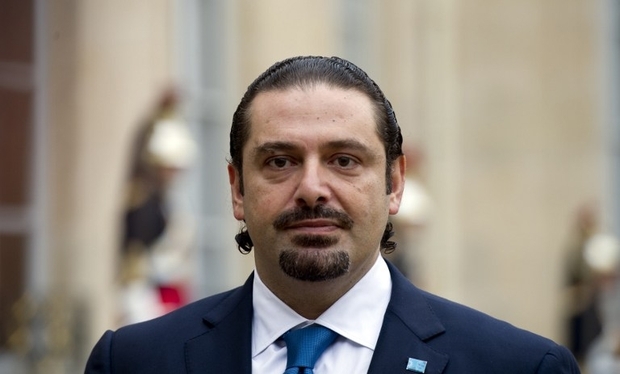
Lebanese Prime Minister Saad Hariri confirmed he will return to Beirut in time for Independence Day celebrations Wednesday, as political turmoil rocks his country following his resignation announcement in Saudi Arabia.
"I will return to Beirut in the coming days," Hariri said after crisis talks with French President Emmanuel Macron in Paris.
"I will participate in the celebrations for our independence and it is there that I will make known my position on all the issues after meeting with the president of our republic, general Michel Aoun."
Aoun, who has refused to accept Hariri's resignation while he remains abroad, had said earlier Saturday that the premier would return in time for Independence Day.
Arrival in Paris
Hariri arrived in Paris on Saturday at the invitation of Macron, who is attempting to help broker a solution to a political crisis that has raised fears over Lebanon's fragile democracy.
Macron greeted Hariri warmly as he arrived for talks at the Elysee Palace hours after flying in from Riyadh with his wife.
Their eldest son, Houssam, was due to join the couple for lunch with Macron at the palace.
But the Hariris arrived in Paris without their younger children - Loulwa and Abdelaziz, born in 2001 and 2005 - who are staying in Riyadh "for their school exams," a source close to the premier said.
"Hariri does not want to mix his children up in this affair," the source said.
Hariri, who along with Saudi officials has repeatedly denied that he was being held under de facto house arrest in Riyadh, hammered home the message just before his departure.
"To say that I am held up in Saudi Arabia and not allowed to leave the country is a lie," he said in a Twitter post.
A source close to Hariri said the premier had held an "excellent, fruitful and constructive" meeting with the powerful Saudi Crown Prince Mohammed Bin Salman before he left.
Hariri, a dual Saudi citizen who has previously enjoyed Riyadh's backing, announced his resignation on November 4.
He said he feared for his life, accusing Iran and its powerful Lebanese ally Hezbollah of destabilising his country.
Battle for influence
But Hariri's failure to return from Saudi Arabia prompted claims he was essentially being held hostage there, including from Lebanon's president, who refused to accept his resignation from abroad.
Hariri's resignation was widely seen as an escalation of the battle for influence between Sunni Saudi Arabia and Shiite Iran, regional arch-rivals which back opposing sides in the conflicts in Syria and Yemen.
His attempt to step down also coincides with a purge of more than 200 Saudi princes, ministers and businessmen.
Hariri met French Foreign Minister Jean-Yves Le Drian in Riyadh on Thursday as Paris, which held mandate power over Lebanon for the first half of the 20th century, seeks to ease the crisis.
In another development, Riyadh on Saturday recalled its ambassador to Berlin in protest at comments by Germany's Foreign Minister Sigmar Gabriel which were interpreted as a suggestion that Hariri acted under Saudi orders.
Without mentioning Saudi Arabia directly, Gabriel had said Thursday that he shared concerns about the threat of instability and bloodshed in Lebanon and warned against "adventurism".
"Lebanon has earned the right to decide on its fate by itself and not become a pinball of Syria or Saudi Arabia or other national interests," he had said earlier in the week.
Germany's foreign ministry had yet to comment on the row, but in a statement it welcomed Hariri's "imminent return to Lebanon".
'Start of a solution'
Ahead of Hariri's departure, Aoun - an ally of Hezbollah - welcomed the trip to Paris, expressing hope that it was the "start of a solution".
"If Mr Hariri speaks from France, I would consider that he speaks freely," Aoun said.
"But his resignation must be presented in Lebanon, and he will have to remain there until the formation of the new government."
France's intervention was the latest in a string of European efforts to defuse tensions over Lebanon, where divisions between Hariri's Sunni bloc and Shiite Hezbollah have long been a focal point in a broader struggle between Riyadh and Tehran.
Hariri, whose father, ex-prime minister Rafiq Hariri, was killed in a 2005 car bombing blamed on Hezbollah, took over last year as head of a shaky national unity government which includes the powerful Shia movement.
Saudi Arabia's Foreign Minister Adel al-Jubeir insisted from Madrid that "unless Hezbollah disarms and becomes a political party, Lebanon will be held hostage by Hezbollah and, by extension, Iran".
Hariri's resignation comes as the long-standing rivalry between Saudi Arabia and Iran intensifies and as Riyadh undergoes a major shake-up under the ambitious crown prince.
Middle East Eye propose une couverture et une analyse indépendantes et incomparables du Moyen-Orient, de l’Afrique du Nord et d’autres régions du monde. Pour en savoir plus sur la reprise de ce contenu et les frais qui s’appliquent, veuillez remplir ce formulaire [en anglais]. Pour en savoir plus sur MEE, cliquez ici [en anglais].


